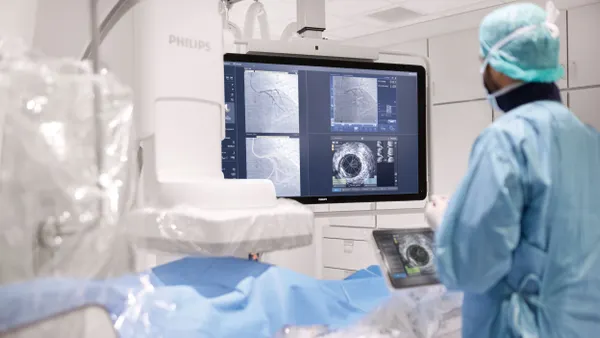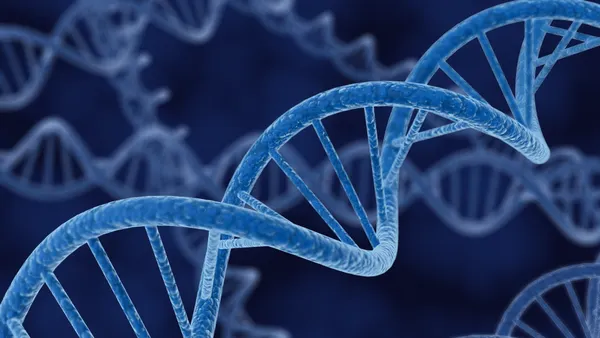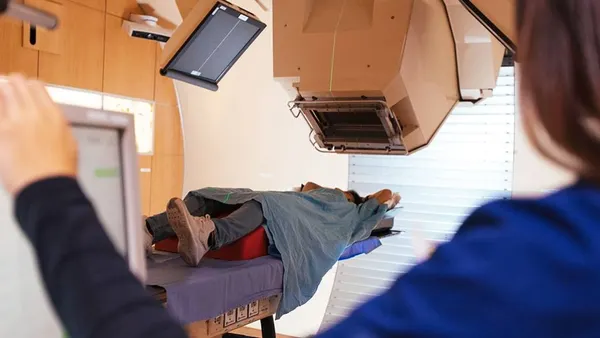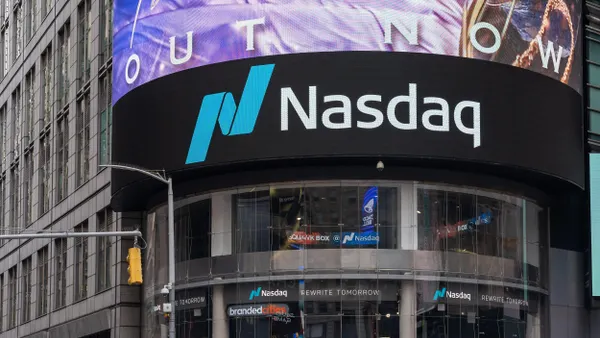Dive Brief:
-
The Federal Trade Commission has moved to block Illumina's $7.1 billion takeover of Grail on the grounds it will "harm competition in the U.S. market for life-saving multi-cancer early detection (MCED) tests."
-
Illumina said it disagrees with and will oppose the FTC action, arguing that the company and Grail "do not compete in any way" and that the merger will get tests "to patients more quickly and more affordably, resulting in more lives being saved."
- Analysts at Evercore ISI called the FTC action a surprise but, based on prior situations such as Illumina's blocked takeover of Pacific Biosciences, sees no "easy fixes" for the companies. The analysts expect Exact Sciences, which is competing in the MCED test space, to benefit from the commission's challenge.
Dive Insight:
FTC typically opposes a merger when a combination would grant a company too big a share of a market. Faced with such an objection, the companies can divest assets to reduce their share of a market, as happened when Stryker offloaded total ankle replacements and finger joint implants products to DJO Global to get FTC's blessing to buy Wright Medical.
The objection to the Illumina-Grail merger is different. Illumina, a provider of genome sequencing technology, and Grail, a developer of MCEDs, work in different markets. Equally, analysts at Evercore thought "the question of monopoly wasn't really relevant" as MCEDs are new to the market. Yet, FTC sees Illumina's dominance of the sequencing market as a reason to oppose the Grail merger.
"As the only viable supplier of a critical input, Illumina can raise prices charged to Grail competitors for NGS instruments and consumables; impede Grail competitors' research and development efforts; or refuse or delay executing license agreements that all MCED test developers need to distribute their tests to third-party laboratories. For the specific application at issue in this matter — MCED tests — developers have no choice but to use Illumina NGS instruments and consumables," FTC said.
In theory, another sequencing business could capture business from MCED developers that become dissatisfied with Illumina's prices and policies. However, FTC argues it "would take years" for MCED developers to transition away from Illumina because they would need to reconfigure their tests for a new platform and potentially run new clinical trials.
An administrative trial is scheduled to start on Aug. 24. FTC is seeking a preliminary injunction to stop the deal pending the conclusion of the trial.
The FTC argument touches on concerns raised by analysts when Illumina first disclosed the takeover. Analysts at Cowen said "acquiring Grail would create conflicts with many of Illumina's existing clinical customers" and "increase the motivation to work with alternative sequencing/tools technology suppliers." Those concerns led the analysts to warn that "in this instance '1+1' could actually equal 'less than 2.'"
Illumina pushed ahead with the deal amid the skepticism of analysts and investors and is set to try to do the same in the face of the objection of FTC. The sequencing giant issued a statement arguing the deal "is in the best interest of patients, is pro-competitive and benefits the multi-cancer early detection field as a whole." Illumina called the FTC challenge "a marked departure from longstanding antitrust precedent."
Illumina said it intends to pursue all legal options to complete the acquisition. However, the Evercore analysts warned the "track record doesn't bode well, and we don't see any easy fixes on Illumina's part to mitigate FTC's concern." Illumina added that the company has already offered clinical oncology customers "contractual guarantees of equal and fair access to Illumina sequencing, and a commitment to drive down prices by more than 40% by 2025."
Whatever the outcome, the FTC challenge will at least delay the deal and potentially distract Grail and Illumina. The Evercore analysts framed that as a positive for Exact Sciences as it will now have a "clear shot at MCED tests."
Shares in Illumina fell 7% Tuesday after the FTC action news was announced, but the stock price rebound by about 2% when the market opened Wednesday. Exact Sciences' stock rose 3% on Tuesday.








